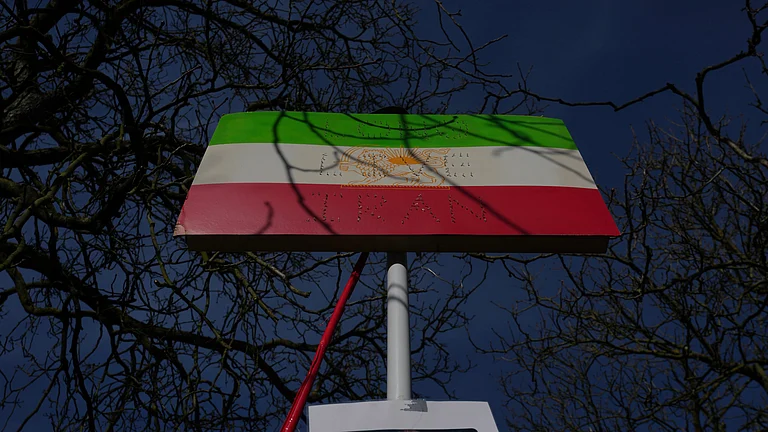Back in the mid-’90s, the menace of erratically mushrooming cable television networks could well have been sorted out with controls on the distribution and technological side of the business. But while enacting the Cable TV Act of 1995, Parliament added provisions intended to regulate ‘content’ too. And the law made the violation of these provisions—under ‘Programme Code’ and ‘Advertisement Code’—a penal offence.
These rules laid down a seemingly comprehensive, but rather incomprehensible, set of standards that were required to be followed in any programme broadcast in India. For instance, the Programme Code bars anything that “offends against good taste or decency”, or “contains visuals or words which reflect the slandering, ironical and snobbish attitude in the portrayal of certain ethnic, linguistic and regional groups”. Besides the odd phrasing, the ideas contained there are elastic enough to mean anything—or everything.
When our Republic was new, the Supreme Court had set down the principle that a law that ex-facie infringes a fundamental right (such as free speech) could be struck down even if it had merely the potential to do so, without the requirement of showing actual infraction. The Court also frowns upon a law that is so vague that those applying it are in a “boundless sea of uncertainty” as to its precise meaning. That is, a law that threatened to take away a guaranteed freedom could not leave itself open to misuse in its actual application—the law should give a person of ordinary intelligence a reasonable opportunity to know what is prohibited, so that s/he may act accordingly. Recently, the Supreme Court struck down section 66A of the Information Technology Act (which made sending offensive messages on the internet a punishable offence) holding that the section violated the free speech guarantee. Several provisions of the Programme Code—by themselves and even without citing any specific instances of misapplication by the authorities (which abound, though)—would invite the ‘void-for-vagueness’ doctrine.
If at all any doubt existed over the potential for misuse, it was quelled by the Information & Broadcasting ministry’s November 2 order punishing NDTV India for carrying a news report on the Pathankot terror attack on January 4, 2016. Holding that the channel had “not shown restraint, responsibility and sensitivity and revealed strategically-sensitive details in violation of Rule 6(1)(p) of the Programme Code”, the ministry imposed a one-day ban on the transmission of the channel on any platform throughout the territory of India.
While it is for NDTV to defend itself, there are troubling questions here that go beyond the immediate case and must engage us as a democracy. For, the legal provisions under which the order was made come from one of the ‘landmines’ that lie embedded in the Indian statute book. It renders all those who may want to express themselves freely, including the media, vulnerable to pernicious governmental interference and intimidation, including, most worryingly, laws relating to sedition, criminal defamation and others.
NDTV’s defence highlights the potential for subjective, or selective, application. The channel contends the information it ‘revealed’ was already in the public domain, including via official press briefings given by senior armed forces officers and security agencies; that the coverage was not “live” (which is an essential aspect before the rule can be invoked); and that the information carried on the show did not reveal any specifics that compromised “national security”.
This last one is a nebulous ghost that looms large over every aspect of public discourse today. The Supreme Court has said national security is not a question of law but of policy, but the application of this catchall phrase to the case at hand begs the question if it served national security to allow members of Pakistan’s joint investigation team to visit Pathankot ?
In a largely unlettered nation, the electronic media without doubt becomes a potent and impactful source of news—and it’s true that the government, as the single-most significant subject of media reportage, can occasionally be aggrieved. But under the Cable TV Act, the government is itself the accuser, the prosecutor and the judge. The I&B ministry is empowered to issue a showcause notice to an errant channel and place the matter before an inter-ministerial committee; bureaucrats then sit in judgement over the content telecast. A nice and cosy arrangement for any regime; even more convenient for those who may be allergic to criticism or anxious that some inconvenient truth may be revealed.
Worse, no scope exists for an appellate remedy within the statute. Of course, one may move court, but the legislation itself affords no remedy. The inherent unfairness of this will stand out in relief if one considers that the Programme Code applies only to the electronic media. Against a newspaper, say, the government would not be able to resort to its ‘in-house adjudicatory’ machinery to do justice to itself in a similar case. Not that one is canvassing for such a blanket oversight mechanism, with penal powers, upon print. Fairness should flow in the other direction—for, arbitrary laws that hang over press freedom present a clear and imminent danger to our autonomy as a people.
(The writer is a senior advocate practising in Delhi)






















